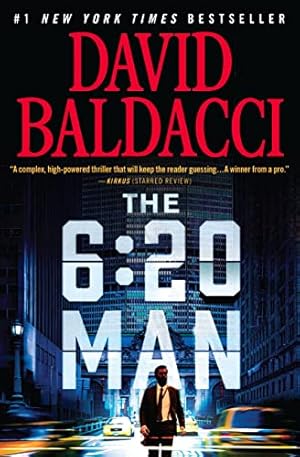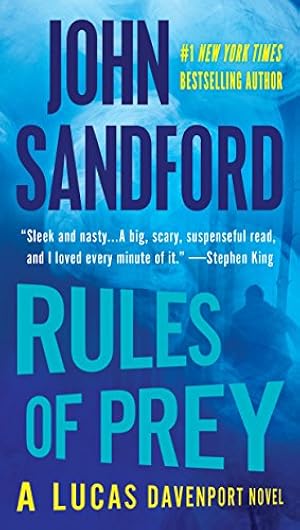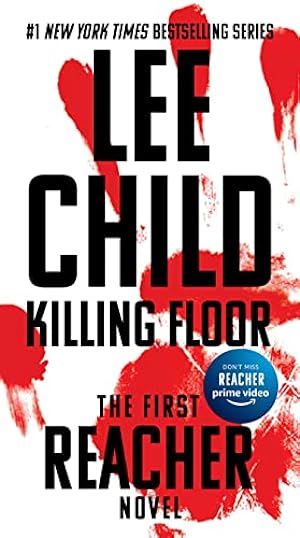These promotions will be applied to this item:
Some promotions may be combined; others are not eligible to be combined with other offers. For details, please see the Terms & Conditions associated with these promotions.
Audiobook Price: $17.72$17.72
Save: $8.73$8.73 (49%)
Your Memberships & Subscriptions

Download the free Kindle app and start reading Kindle books instantly on your smartphone, tablet, or computer - no Kindle device required.
Read instantly on your browser with Kindle for Web.
Using your mobile phone camera - scan the code below and download the Kindle app.



 Audible sample
Audible sample Follow the author
OK
The Golem of Paris (A Detective Jacob Lev Novel) Kindle Edition
It’s been more than a year since LAPD detective Jacob Lev learned the remarkable truth about his family, and he’s not coping well. He’s back to drinking, the LAPD Special Projects Department continues to shadow him, and the memory of a woman named Mai haunts him. And while Jacob has tried to build a bridge to his mother, she remains imprisoned inside her own tattered mind. Then he comes across the file for a gruesome unsolved murder that brings the two halves of his life into startling collision. Finding the killer will take him halfway around the world, to Paris. It’s a dangerous search for truth that plunges him into the past. And for Jacob Lev, there is no place more frightening.
- LanguageEnglish
- PublisherG.P. Putnam's Sons
- Publication dateNovember 3, 2015
- File size1.6 MB
Shop this series
See full series- Kindle Price:$19.98By placing your order, you're purchasing a license to the content and you agree to the Kindle Store Terms of Use.
Shop this series
This option includes 2 books.
Customers also bought or read
- The Ritual Bath: The First Decker/Lazarus Novel (Peter Decker and Rina Lazarus Book 1)
 Kindle Edition$9.99$9.99
Kindle Edition$9.99$9.99
Customers who bought this item also bought
Editorial Reviews
Review
“A compelling mix of adventure, crime, and horror with paranormal and historical elements. The Golem of Paris is a fascinating and frightening glimpse into an imagined religious supernatural subcult [as well as] an engaging crime-solving tale.”—Kirkus Reviews
“A classically constructed detective story featuring the tormented hero of a previous book (The Golem of Hollywood) that morphs into a supernatural thriller combining elements of Jewish legend, religious mysticism, and pagan mythology.”—New York Times Book Review
“I don’t know how one might define ‘magic’ in the literary sense, but I can give you an example of it: The Golem of Paris. It is ostensibly a mystery, but it slides across genre boundaries—romance, supernatural, historical, liturgical- and obliterates them. It is a wonderful, haunting tale...Read, wonder, and enjoy for yourself.”—Bookreporter.com
About the Author
Jesse Kellerman won the Princess Grace Award for best young American playwright and is the author of Sunstroke, Trouble, The Genius (for which he won the 2010 Grand Prix des Lectrices de Elle), The Executor, and Potboiler (for which he was nominated for the Edgar Award for Best Novel). He lives in California.
Excerpt. © Reprinted by permission. All rights reserved.
Bohnice Psychiatric Hospital
Prague, Czechoslovak Socialist Republic
December 17, 1982
“The patient will wake up.”
The Russian’s voice is soft and careful, handling the words in Czech like an unfamiliar weapon.
She has taught herself deafness. How else to sleep in this deranged place, its nights clotted with moans and prayers to a God that does not exist, cannot exist, for the
State has declared him dead.
The State is correct.
Proof of God’s death is all around her.
Senseless, trying to hide. She cowers just the same as the Russian kneels to unlock her cage, his greatcoat opening like a pair of dark wings. The cell door stands ajar, admitting a sickly fan of light from the grease-smeared bulb that smolders in the corridor.
“The patient will stand, please.”
She will be punished. Her cellmates want none of it. Fat Irena pretends to snore, blowing white balloons. Olga’s fingers are knotted in the hollow of her belly.
The fourth bed is empty.
“Little bird,” the Russian says. “Do not make me ask again.”
She swings her feet to the freezing concrete, finds her paper slippers.
They step into the low, broad passageway known as Bulvár šílenci.
Lunatics’ Boulevard.
While the Russian finds the correct key, she assumes the mandatory posture, kneeling with forehead to the linoleum. Along the corridor, a feverish racket is stirring. The other inmates have heard jangling. They want to know. Who is leaving? Why?
“The patient may stand.”
She rises, using the wall for support.
He leads her down the Boulevard, past the staff room, where orderlies doze in armchairs under heavy doses of self-prescribed sedatives. Past physicians’ offices, exam rooms, Hydrotherapy and Electroshock and rooms unmarked except for numbers. Rooms that cannot be labeled truthfully.
The women’s ward ends at two consecutive locked doors, gray paint peeling to reveal steel the same color.
Where is he taking her?
Syringes crunch beneath his boot-heels in the dank stairwell, the temperature dropping with every step. Upon reaching the ground floor, the Russian pauses to remove his greatcoat and drape it over her shoulders. The hem puddles. He places his ushanka on her head, ties the flaps under her chin.
“I would give you my shoes,” he says, tugging off his gloves, “but I must drive.”
He pauses, frowns at her. “Are you all right, little bird? You look unwell.”
Bare fingers brush her cheek. The sudden warmth causes the cold to constrict around her viciously, and she recoils, shivering.
He withdraws his hand. “Forgive me.”
He looks almost remorseful, twisting the thick black ring on his index finger. “Do not be afraid. You are leaving this place.” He offers the gloves. “Please.”
She steps out of the paper slippers and pulls the gloves on over her numb feet. They cover her to the ankles.
He laughs. “Like a chimpanzee.”
She smiles obligingly.
They step out into the frigid courtyard.
The guard manning the hospital gate wears a Socialist Union of Youth pin his lapel. The Russian returns his salute and says that the patient Marie Lasková has been remanded into his custody.
A riffle of paperwork, a signature, a second exchange of salutes.
And like that, she is cured, no longer a menace to society, but a healthy, sane, productive citizen of the republic.
The guard unlocks the gate and shoves it wide.
“Ladies first,” the Russian says.
It’s there, three steps away: freedom. Yet she does not move, gazing back across the courtyard, a brown scalloped mass. The snow of St. Catherine’s Day, well on its way to Christmas mud. A single locust tree stands denuded, its branches pruned back to thwart escapees, the trunk wrapped in barbed wire for good measure.
The Russian watches her patiently. He seems to understand what she is doing before she understands it herself.
She is counting.
The rows of windows, chiseled through concrete.
The ravaged faces beyond. The afflicted bodies. The hunger and the thirst, the cold and the heat and the squalor. The names.
She is counting them all, inscribing them in the ledger of her mind.
She must bear witness.
“Come, little bird. We should not keep him waiting. I left the car running.”
She asks who he is.
The Russian raises his eyebrows, as though the answer should be self-evident.
“Your son.”
She turns the corner, moving fast as she can in her gloved feet.
I’m coming, Danek.
But the car draws her up short: a Tatra 603, squat, matte black, tailpipe stuttering exhaust, identical to the car that brought her in for interrogation so many lifetimes ago.
Who knows? It may be thevery one.
They came to her door one afternoon, a pair of men with cement eyes.
Inspector Hrubý requests that you accompany us.
So polite! You couldn’t possibly say no.
She didn’t worry. She didn’t even bother to send Daniel next door, confident she’d be home in time to cook dinner. And what a dinner it would be: she had half a package of lasagne noodles. Not the gray Russian kind that boiled for hours without dissolving, but authentic, a little Italian flag on the box. Daniel was delirious with anticipation. When she went to the kitchen for her coat, he was eating them straight out of the box, crunching brittle planks between his teeth and giggling. She smacked his hand and stuck the box up on a high shelf, telling him she’d be back soon and don’t be a pig.
Downstairs, she got into the Tatra and spoke the name of her contact. She knew what to expect. For the sake of appearances, they would take her to the StB headquarters onBartolomějská Street. Confirmation would require a phone call. They would let her go without apology or explanation, and she would board the tram back to her apartment. As they pulled into traffic, she sat back, preoccupied foremost with how to make a decent filling for the pasta without butter, cheese, oil, or tomatoes.
Now she sees the car, maybe the same car, and her bowels clench. It’s a hoax, another ingenious ploy to grind down her will and pulverize her spirit.
The tinted back window drops in jerks.
“Matka.”
The voice is impossible. The face, too. She left a laughing six-year-old and has returned to a sober little judge. Lank brown hair tumbles down his forehead. He is not smiling. He looks as though he has never smiled in his life.
“Why are you waiting,” he says.
Why, indeed. Cheeks streaming, she waddles forth, climbs into the back seat.
And immediately he shrinks from her, pressing into the opposite door, his nose scrunched. She must stink. She takes his face in her hands and smothers it in kisses. Still he won’t look at her, his eyes bent toward the ceiling. She says his name; kisses him, again and again, until he forcibly pulls away, and she falls back, her throat salty and raw.
The Russian gets behind the wheel. He tries to shift into gear and stalls out.
“Garbage,” he mutters. Of all his cold-weather clothing, he has chosen to retain his scarf, and he pinches the fringe annoyedly, struggling to restart the motor. “You people don’t know the first thing about making cars.”
She says Daniel’s name again, softly.
He sits with his body twisted away from her, glaring at the fists in his lap.
“Mercedes-Benz,” the Russian says. “Now that is a car.”
I thought I would be back for dinner, Danek. I thought we would eat lasagne.
It’s too painful to look at the back of her son’s head, so she wipes her wet face, tells her heart to hold its tongue. The Russian manages to get the engine going and the Tatra plods along through Prague 8, toward Holešovice.
She supposes she’ll know their destination soon enough. Just as she did not question the men who came to her door, she does not question this new turn of fate. More often than not, the system takes away. Moments of generosity are not to be analyzed, but grabbed and hoarded like the boxes of Cuban oranges that appear in the shop windows without warning.
You buy as many as you can afford, as many as you can carry, because you cannot know when they might appear again, if ever. You take more oranges than two people can possibly eat; you barter them for items you do need, toilet paper or socks; if you are enterprising, you swap some of the oranges for sugar, which you then use to make a loose marmalade of the remaining oranges. You keep the jars hidden in the bureau like golden coins, ready to be deployed in lieu of cash when noodles come along.
But Miss Lasková Inspector Hrubý said, turning a jar in his hand. I must object: you made it far too sweet, you eliminated the bitter edge, which is makes a good marmalade. Tell me, who would want such sweet marmalade?
He set the jar down, pushed a pencil toward her. Write down their names.
Now the Tatra reaches the Čechův Bridge, iced over, its statuary in disrepair. Though dawn is hours away, she can make out the graceful silhouette of Old Town. She prefers it at night. Sunlight is cruel, revealing lost tiles like rotten teeth; creamy surfaces varnished black by the sooty, cancerous winds that blow in from the north.
Against violet clouds, the buildings’ regal contours assert themselves, and she feels a stab of kinship with these piles of wood and stone: beautiful, proud, soiled, secret.
“There is a group of Western artists visiting Prague,” the Russian says. “I believe you are acquainted with one of them.”
Her chest flutters. Yes, she is acquainted.
“In three hours, they depart for Vienna. They will convene outside the old synagogue before proceeding to the train station. You will approach your friend and explain that you have been discharged. You will express a desire to leave Czechoslovakia. You will display counterfeit travel documents and ask to go with her and her group, in order to provide cover. She will agree, because you have established a prior relationship with her. There is a recording of a conversation which took place between you, in which she is heard promising to work for your release. Am I correct, little bird? Do you remember she told you that?”
She will never forget it. She nods.
“Once in Vienna, you will go to the American embassy. You will describe the horrors of your confinement and offer to defect. To prove your sincerity, you will supply information about a novel design for a nuclear power plant to be constructed outside Tetov. You obtained this information from doktor Jiři Patočka, a physicist with whom you have been romantic. I am sure you will have no difficulty describing your affair with him vividly. Allow me to introduce you.”
She studies the black-and-white snapshot of a man she has never met.
“You will receive further instructions when appropriate.”
She glances at her son.
“Yes, little bird, he comes, too. You understand we could not speak of this before. You have always been a loyal solider. I admire that quality. But we had to give you a plausible motivation to betray us.”
She understands perfectly. She prays that her son can understand, too.
Do you see, Danek, the purpose of our suffering? Or will you hate me forever?
“So?” the Russian says. “Happy? Faith is restored?”
“Yes, sir.” Then she worries that she’s given the impression that her faith was ever compromised. She says, “Hopeful.”
The Russian laughs. “Even better. What is life, without hope?”
On Paříská Street, he eases to the curb. Daniel throws open the door and dashes across the street toward the synagogue, gaping up at its serrated brow. The entire structure appears to be sinking into the earth, as though hell has opened its throat.
She gets out, hopping over a ridge of black slush.
Wide steps lead from the pavement down to a cramped, cobbled terrace. The Russian kicks aside wet garbage, clearing room to stand. Daniel explores pocks in the synagogue’s exterior plaster, rising on his tiptoes in an attempt to grasp the column of iron rungs set into the wall, the lowest of which is still far too high for him. Her heart blossoms at this evidence that he remains a child, unaware of his own limitations.
He points to a peaked door at the top of the rungs, ten meters up. “What’s that?”
“Really?” the Russian says. “Nobody has told you?”
Daniel shakes his head.
The Russian smiles at her mildly. “You can see for yourself why your nation is doomed. You lack pride.” He says to Daniel, “This is an important part of Czech culture, little one. You have heard of the golem, surely.”
The boy fidgets. “…yes.”
“Are you telling the truth, or are you trying to avoid looking stupid?”
“It’s not his fault,” she says. “They don’t teach useless fables in school anymore.”
“Ah, but must everything have a practical application?”
She hesitates. “Of course.”
The Russian laughs. “Well said, soudruka. Spoken like a true Marxist-Leninist.” He smiles at Daniel. “I will tell you, little one: through that door is the synagogue garret. You know what a synagogue is? A church for the Jews. Their priest, he is called the rabbi. There was once a very famous rabbi of this synagogue. They say he made a giant from clay. A monster, made of mud, three meters high. Taller than I, and you can see for yourself how tall I am. Fantastic, eh?”
Daniel smiles shyly.
“Alas, the creature could not be controlled. It had to be stopped.”
The Russian kneels, grasps Daniel by the shoulders with his huge hands, the fingertips and thumbs nearly touching. “But here’s the interesting part. The golem is not dead. It is asleep, right behind that door. And they say that on certain nights, when the moon is full, it wakes up.”
Daniel tilts his head back, searching the woolly cloud cover.
The Russian grins. “Yes. And if you are patient, and do what you must, you can draw it out. And if you say the right things, at the right moment, you can grab hold of it, and it becomes yours. It must do anything you command.”
He gives Daniel’s shoulders a squeeze and stands. “So? What do you make of that, little one? Do you believe it?”
Daniel’s tongue protrudes in concentration. “Jews are dirty.”
The Russian bellows laughter.
She says, “We don’t speak this way about anyone.”
“Your mother is right, little one. Dirty or not, you are going to be traveling among them, so you had better mind your mouth. Are you still hungry?”
The Russian looks at her. He wants his coat back.
She hands it over, and he fishes out a chocolate. Daniel begins to tear it open before manners kick in and he glances to her for permission.
“First say thank you.”
“Thank you,” Daniel says, and he crams the chocolate in his mouth.
The Russian says, “I hope you enjoy it very much.”
“Are we to wait in the cold for three hours?” she asks.
“I will fetch the dossier,” the Russian says. “Use the time to study it.”
He bounds up the steps and out of sight.
She rubs her arms to keep warm, resentful that he took the coat with him. How long has she been free? Not an hour, and already finding something to complain about! Perhaps the Russian is right about the Czechs. But if they have no pride, it’s because pride has been outlawed, per the dictates of men thousands of miles away.
He left her the hat and the gloves, at least.
She stamps and shivers, watching Daniel lick his fingertips. “Where did you learn to talk such rubbish?”
“Berta says so.”
She starts to ask who is Berta before realizing he means Mrs. Kadlecová, the neighbor who has been caring for him in her absence.
What can she possibly say to that?
And what moral authority does she have to correct him? Not so long ago, she too might have said the same, without a second thought. špinavý id: dirty Jew.
Look at her now, enlightened, putrid, in tattered clothes.
“What else does Berta say?”
“That you are a collaborator.”
Bitch. I entrusted my child to you.
“Do you believe her?”
He shrugs. “Collaborators should be hung from the lampposts.”
“Did Berta tell you that?”
“Everyone says so.”
“Who is everyone?”
He toes the ground, shrugs again.
My sweet boy, my cynical boy. Is that what you’d like to see? Your mother at the end of a rope?
She says, “I’m sorry I was gone so long. I didn’t know it would turn out this way. It will be different from now on. I swear to you.”
Silence.
He says, “It’s my name day.”
Of course it is. She had forgotten, wrapped up in her own shock. Of course it is this that makes a boy of six refuse to look at his mother—a simple error. With a simple correction. She could weep with joy.
“There are no calendars in prison, my love. You’re right, though. You’re absolutely right, and I apologize with my whole heart. I’ll tell you what we’ll do. As soon as we’re settled, we’ll throw the biggest party you’ve ever seen. Do you hear me, Danek? You won’t know where to begin opening presents, there will be so many. We’ll have a cake. What kind would you like?”
He looks at her uncomprehendingly.
“Over there, cakes come in many different flavors,” she says. “Vienna is famous for its bakeries. Raspberry, lemon, marzipan, chocolate—”
“Chocolate,” he says.
“Very well then, chocolate it is. And lemonade, too—no, hot chocolate, it’s too cold for lemonade. Chocolate cake and hot chocolate, a chocolate feast, doesn’t that sound marvelous?”
“How do you know?” he says.
“What?”
“How do you know they come in different flavors?”
“Because I’ve been there, my love. I’ve tasted them for myself.”
His eyes widen. “You have?”
“Many times.”
“When?”
When I was young. When I was beautiful. When I didn’t know any better.
“Before you were born, darling.”
She takes a tentative step toward him, emboldened when he does not retreat. She slips her filthy hand into his clean one, and for a moment feels clean herself.
“Well?”
The Russian clomps down the steps, greatcoat billowing, a leather satchel under one arm. He sets it on the ground and stands akimbo, puffing steam.
“Any sign of it?”
It occurs to her that although she has seen him many times, she has never really appreciated his entirety. In the hospital, lights were kept low, and it was inadvisable to look staff in the eye—a sure way to draw unwanted attention.
Now diffuse moonlight touches a long, pale, waxy face, a candle incised with the features of a man, at once handsome and ghastly and difficult to comprehend, as though his flesh is reshaping itself every second. His hair is the uncertain white of morning frost, his proportions an affront to common sense.
Stunted teeth, snaggled and blackly rimed, are the sole evidence of his humanity.
“Any sign of what?” she says.
“The golem,” he says. “What do you say, little one?”
Daniel says, “I didn’t see.”
“Nothing?” The Russian squats, begins undoing buckles. “That is disappointing.”
He opens the satchel and produces a fist-sized object wrapped in newspaper.
“Can I see the dossier?” she asks.
He begins peeling away layers of newspaper. “I must tell you: I lied.”
The last layer comes away to reveal a small earthenware jar. The Russian gingerly sets it on the cobblestones and reaches into the satchel for another wrapped item, a flat disc. “A full moon does not have the first thing to do with it.”
He unwraps a matching earthenware lid and places it on the ground.
“The artists left weeks ago, little bird.” He cups the jar in the broad belly of his palm, then carefully slots the lid between thumb and forefinger, so that he is holding both, leaving one hand free. “They are home by now, in their comfortable American beds, fucking their comfortable American girlfriends and boyfriends.”
For a third time, he reaches into the satchel, withdrawing a black-and-brown Makarov pistol. He flicks off the safety and stands up.
“Not the boy,” she says.
“Of course the boy,” he says, and he shoots Daniel.
Daniel collapses, shins bent under thighs, a black hole oozing in his forehead.
“Of course the boy,” the Russian says. “That is the whole point.”
She cannot find the air to cry out or the energy to move, and she knows without a doubt that he is right, she is doomed, they all are, because at least she ought to be able to summon a sense of outrage, but there is nothing, she feels nothing.
Gun in one hand, jar and lid in the other, the Russian stands with his eyes raised to the garret door, his lips moving like a housewife making a shopping list, murmuring.
After a while, he frowns at her. “My hat.”
She stares at him.
“Take it off, please.”
She does not move.
“I do not want to soil it,” the Russian says.
She does not move.
“Never mind,” he says.
He shoots her in the chest.
Flattened against the frozen stones, she tastes the warm salty gush rising from her ruined heart. The clouds briefly part, and then the Russian’s winged shape looms forth to eclipse the moon.
#
He waits for her eyes to dull, then turns and watches the door, chanting softly.
Nothing.
He studies the whore’s body. Still alive? To be absolutely certain, he shoots her a second time, slightly to the left. Her blouse shreds.
He looks up. Nothing.
Well, one can only try.
Try, and try, and try again.
Mindful of a irritating throb, he loosens his scarf to give his skin some air, probes the rising cairn of flesh. He tucks his gun in his waistband, sighs wearily, and kneels to rewrap the jar.
Freezing in horror.
The lid is cracked—a thin black line from edge to edge.
When did that happen?
He must have set it down too hard.
He was trying to do too many things at once. He only has two hands.
It’s typical. He was sloppy, overeager, careless, an idiot.
He falls down onto his tailbone, rocking, shaking with rage.
Idiot, idiot, clumsy idiot, see what you’ve done, the mess you’ve made; stop crying, insolent little shit, don’t stare at the ground, be a man and look at me, look me in the eye, look at me, look.
Product details
- ASIN : B00SI0B9MM
- Publisher : G.P. Putnam's Sons (November 3, 2015)
- Publication date : November 3, 2015
- Language : English
- File size : 1.6 MB
- Text-to-Speech : Enabled
- Screen Reader : Supported
- Enhanced typesetting : Enabled
- X-Ray : Enabled
- Word Wise : Enabled
- Print length : 505 pages
- Best Sellers Rank: #353,390 in Kindle Store (See Top 100 in Kindle Store)
- #1,883 in Contemporary Fantasy (Kindle Store)
- #2,427 in Psychological Fiction (Kindle Store)
- #4,087 in Contemporary Fantasy (Books)
- Customer Reviews:
About the author

Jonathan Kellerman is the #1 New York Times bestselling author of more than three dozen bestselling crime novels, including the Alex Delaware series, The Butcher’s Theater, Billy Straight, The Conspiracy Club, Twisted, True Detectives, and The Murderer’s Daughter. With his wife, bestselling novelist Faye Kellerman, he co-authored Double Homicide and Capital Crimes. With his son, bestselling novelist Jesse Kellerman, he co-authored The Golem of Hollywood and The Golem of Paris. He is also the author of two children’s books and numerous nonfiction works, including Savage Spawn: Reflections on Violent Children and With Strings Attached: The Art and Beauty of Vintage Guitars. He has won the Goldwyn, Edgar, and Anthony awards and has been nominated for a Shamus Award. Jonathan and Faye Kellerman live in California, New Mexico, and New York.
Customer reviews
Customer Reviews, including Product Star Ratings help customers to learn more about the product and decide whether it is the right product for them.
To calculate the overall star rating and percentage breakdown by star, we don’t use a simple average. Instead, our system considers things like how recent a review is and if the reviewer bought the item on Amazon. It also analyzed reviews to verify trustworthiness.
Learn more how customers reviews work on AmazonCustomers say
Customers find the book appealing and appreciate its Jewish mysticism and interesting characters. The writing style receives mixed feedback - while some find it well-written, others say it's too complex and confusing to follow. The storyline and pacing receive mixed reactions, with some finding it engaging while others describe it as hard to follow and slow-moving.
AI-generated from the text of customer reviews
Customers find the book to be an excellent read, particularly noting it as a great second installment in the series.
"...A surprisingly good read that I found hard to put down." Read more
"I enjoyed the first book in the series and loved the second one. Interesting, educational and terrifying all at the same time...." Read more
"...there are a few pages of prose that are compelling but do not justify reading this book, Maybe it is my own fault for not starting at the beginning..." Read more
"...but the dynamic father-and-son writing duo is as eloquent and masterful as ever as they breathe life and intrigue in every character in this..." Read more
Customers appreciate the Jewish mysticism in the book, finding it fascinating and inventive, with one customer noting its complex Jewish mythology.
"I enjoyed the first book in the series and loved the second one. Interesting, educational and terrifying all at the same time...." Read more
"...It is an uncomfortable read, which makes it interesting and keeps your attention. It is definitely not a formula novel...." Read more
"...I like how the authors use Jewish mysticism to create an entertaining detective story connecting the past to the present...." Read more
"...tale involves people of multiple generations, several countries, Jewish traditions, the need for gifted potters and crimes...." Read more
Customers appreciate the interesting characters in the book, with one customer noting how the great prose leads to character involvement, and another mentioning how it answers questions about the protagonist's mother.
"...duo is as eloquent and masterful as ever as they breathe life and intrigue in every character in this novel...." Read more
"...Their characters are all so vivid and human. Even when they are not." Read more
"...I've found Jacob Lev to be an appealing, memorable character, and I'm glad that he'll be back again; there is a third Kellerman collaboration in..." Read more
"...It's just not enjoyable, the characters are not likable. The genre is neither fish nor fowl -- is it a fantasy thriller?..." Read more
Customers find the book appealing, with one customer particularly appreciating the beauty of the Chech Republic setting and another noting the new look for Kellerman.
"While THE GOLEM OF HOLLYWOOD was a masterpiece, its sequel, THE GOLEM OF PARIS, does not disappoint...." Read more
"...I've found Jacob Lev to be an appealing, memorable character, and I'm glad that he'll be back again; there is a third Kellerman collaboration in..." Read more
"...This book might keep you awake at night. This is a new look for Kellerman." Read more
"...He grabs the beauty of the Chech Republic and the problems involved in breaking the bonds of Communism." Read more
Customers have mixed opinions about the storyline of the book, with some finding it interesting and well-told, while others describe it as very hard to follow and confusing.
"...All that being said there are a few pages of prose that are compelling but do not justify reading this book, Maybe it is my own fault for not..." Read more
"...of Kane and Abel, but the dynamic father-and-son writing duo is as eloquent and masterful as ever as they breathe life and intrigue in every..." Read more
"...Maybe it was me, I got confused on the story line a few times and then grew bewildered over who some characters were and if how they fit into the..." Read more
"...I guess you can say it was science fiction in a way. I enjoyed it and it kept me in wonder." Read more
Customers have mixed opinions about the writing style of the book, with some finding it well-written while others say it's not an easy read and the text is confusing to follow.
"...follower of supernatural fiction, I can most certainly appreciate a well-written, nicely-paced thriller, and this book does deliver." Read more
"Such a hard book to read. An oblique writing style that I suppose is designed to heighten the mystery makes the book slow going...." Read more
"Excellent book, excellent writer" Read more
"...It takes a lot of concentration and effort to keep track of the storyline for 70% of the book." Read more
Customers find the pacing of the book slow.
"...that I suppose is designed to heighten the mystery makes the book slow going...." Read more
"...I had not read the first but still enjoyed this one very much! It started slow but quickly picked up the pace and I could not put it down!" Read more
"...not enough background to make the story understandable and it moved rather slowly. The general story line was interesting though." Read more
"Not as good as the Delaware series. Moved slow, picked up then slowed again." Read more
Top reviews from the United States
There was a problem filtering reviews. Please reload the page.
- Reviewed in the United States on August 21, 2020I hesitated to even read this book once I’d read the synopsis. It was a automatic reaction to download the book, though, when I saw a new one by the Kellerman boys, but yikes! While I love learning more about Jewish culture an history, it just seemed so far fetched. How could a story of a modern day golem be worthwhile?
I decided I should give it a chance and started reading. I fell in love with Jacob Lev from the start. Like all good detectives who care about their work, his burnout and his drinking were easily relatable.
His story weaves together with that if his mother Bena, or Bean as her husband Sam calls her. Jacob is still a young child when she is asked to got to Prague and share her pottery talents to make a new, safe and secure home fo the golem, Mai., she did does it, but also finds herself detained and tortured, befriended only by Majka, another prisoner, longing for her own son. When she is finally freed, she slowly loses her ability to cope, having one psychotic episode after another until Sam has her committed, telling Jacob that she has died.
Fast forward to Jacob’s adulthood; as he investigates a cold case in LA, a similar crime takes place in Paris With the same MO, drawing him overseas to investigate a Russian chemist with ties to Prague.
Jacob solves the crime, but not with the outcome he , or I was expecting. Along the way. He learns things that can heal his family and the families of the Murfreesboro innocents. And as a bonus, Jacob learns to care about people he never bothered to get to know.
A surprisingly good read that I found hard to put down.
- Reviewed in the United States on May 4, 2019Or a combination of both. Detective Jacob Lev is going through old cases and finds one that was unsolved and so horrendous he is compelled to figure out who would kill a mother and child and stage them to be seated and looking at each other with open eyes because their eyelids have been removed. I enjoyed the solid detective work mixed with the curious protector Jacob seemed to have. A protector that other strange superhumans want to destroy. And what does all of this have to do with Jacob's mother, who has been confined to an institution for many years?
- Reviewed in the United States on July 18, 2016Not as heavy into the Hebrew mythology as the first one (which I really enjoyed by the way). Maybe it was me, I got confused on the story line a few times and then grew bewildered over who some characters were and if how they fit into the current plot. You also have to read the first book to understand why the Golem is part of this story. Kinda surprised over some of the twists but sadly not in a good way. I was a bit disappointed over-all.
- Reviewed in the United States on September 1, 2024I enjoyed the first book in the series and loved the second one. Interesting, educational and terrifying all at the same time. When will there be another Jacob Lev book??
- Reviewed in the United States on May 6, 2019I had my doubts that starting with the second volume was a good idea. Maybe if I had read the first volume I would have had some basic ideas about the characters and the world created by the authors. So I trusted Kellerman father and son not to disappoint me. My bad. Reading was an annoying voyage of discovery that I considered abandoning many times. I still stuck it out despite time jumps that were confusing. The plot staggers on in fits and starts to a mediocre finale. All that being said there are a few pages of prose that are compelling but do not justify reading this book, Maybe it is my own fault for not starting at the beginning but it remains true that you only get one chance to make a first impression (sorry for such a trite expression). It was not a complete waste of time but sure came close. Only read from the first volume to make up your own mind; otherwise take a pass.
- Reviewed in the United States on July 31, 2016While THE GOLEM OF HOLLYWOOD was a masterpiece, its sequel, THE GOLEM OF PARIS, does not disappoint.
Missing are the flashbacks to prehistoric mythology from the time of Kane and Abel, but the dynamic father-and-son writing duo is as eloquent and masterful as ever as they breathe life and intrigue in every character in this novel.
With elements of mystery, historical fiction, myth, and religion, the Golem takes on evil while the forces of good attempt to contain it. Detective Jacob Lev is nothing like Jonathan Kellerman’s Alex Delaware. He’s of a younger generation, less contained, less conservative in his inner dialogue, and therefore easier to identify with. I get the feeling that Jesse Kellerman played a role in constructing the protagonist for this two-book series.
A great novel, and a highly enjoyable read, THE GOLEM OF PARIS does suffer from mild sequelitis. If you loved THE GOLEM OF HOLLYWOOD, you’ll like THE GOLEM OF PARIS.
- Reviewed in the United States on September 30, 2020It was a very mysterious subject for me, as I was not familiar with what a golem is or what they can do. I have a better understanding now. I guess you can say it was science fiction in a way. I enjoyed it and it kept me in wonder.
- Reviewed in the United States on April 19, 2019Such a hard book to read. An oblique writing style that I suppose is designed to heighten the mystery makes the book slow going. The story might be interesting if I could just decipher what the author is trying so hard not to clearly say. Obfuscation and obscurity are the words that I think while I am trying to finish this strange book Why? It is almost interesting if you can parse the storyline together. Why not just tell the story? Just tell the story without so much atmosphere, without this difficult writing style. Just tell the darn story.
Top reviews from other countries
 AvidJoshReviewed in Canada on November 15, 2018
AvidJoshReviewed in Canada on November 15, 20185.0 out of 5 stars Avid reader approved
Second golem book I've read. Better than the first. Recommended.
 Janet OsReviewed in the United Kingdom on September 8, 2020
Janet OsReviewed in the United Kingdom on September 8, 20205.0 out of 5 stars Wonderful mystical thriller.
What a brilliant follow on from The Golem of Hollywood. This is a brilliant, mystical thriller which I found very exciting and emotional. I can't wait for the next book.
 Amazon CustomerReviewed in the United Kingdom on January 16, 2017
Amazon CustomerReviewed in the United Kingdom on January 16, 20174.0 out of 5 stars A gripping read
A gripping read, different from anything i have read before. I feel i need to read it again already
 Jeff BrownReviewed in Canada on September 16, 2018
Jeff BrownReviewed in Canada on September 16, 20184.0 out of 5 stars GOOD READ BUT DIFFERENT
My first novel with Jonathon Kellerman and his son Jesse. Took a little getting used to, but very well written. Enjoyed this story, but wish I had read The Golem of Hollywood first.
 Jacki Lee-KelemenReviewed in Canada on November 24, 2015
Jacki Lee-KelemenReviewed in Canada on November 24, 20155.0 out of 5 stars Five Stars
Great writer, interesting, entertaining.










































